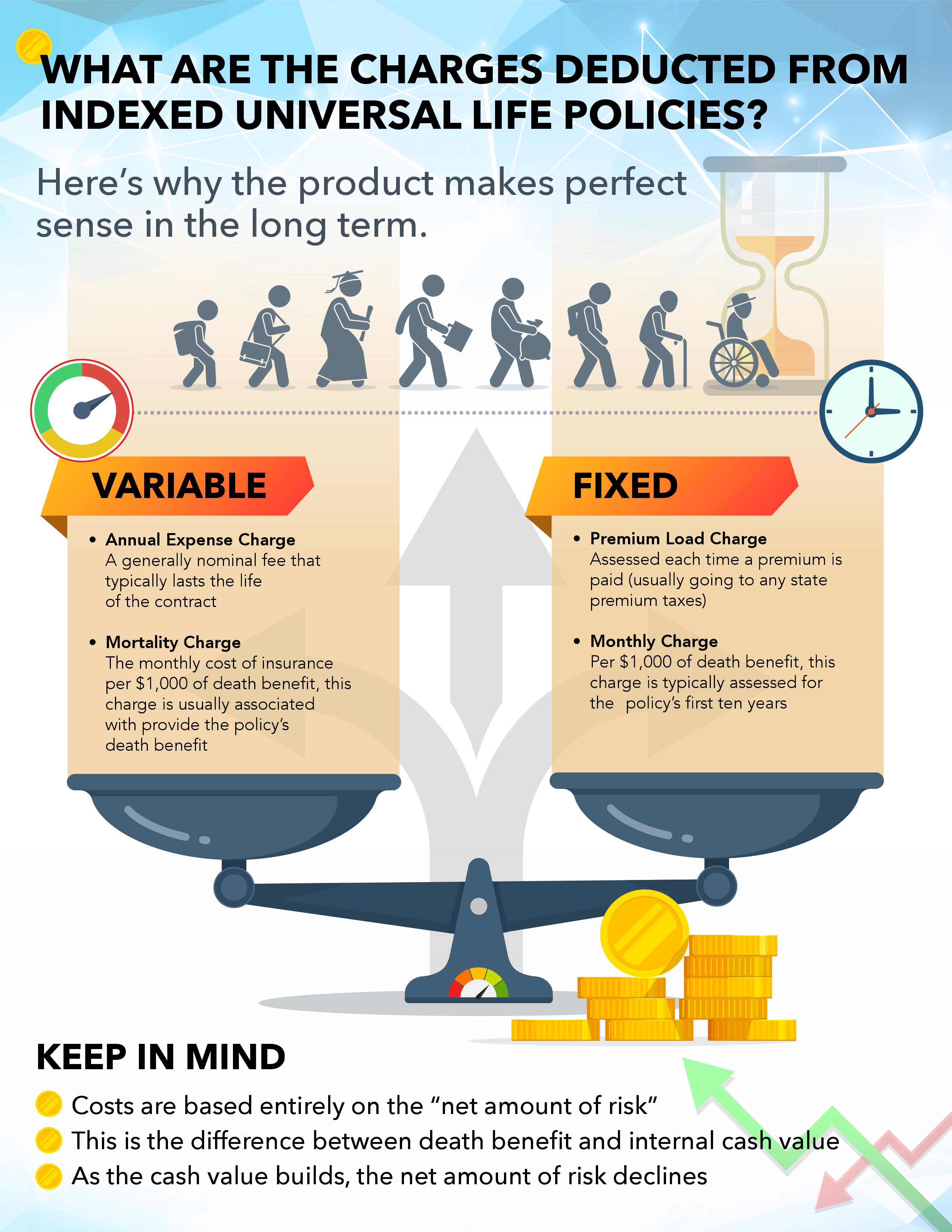All Categories
Featured
Table of Contents
Do they contrast the IUL to something like the Lead Total Amount Stock Market Fund Admiral Shares with no lots, an expense ratio (ER) of 5 basis points, a turn over proportion of 4.3%, and an exceptional tax-efficient document of distributions? No, they compare it to some dreadful actively managed fund with an 8% lots, a 2% ER, an 80% turnover ratio, and a horrible document of temporary resources gain distributions.
Shared funds commonly make yearly taxed distributions to fund proprietors, also when the worth of their fund has actually decreased in value. Common funds not just require income coverage (and the resulting yearly taxes) when the shared fund is rising in value, however can also enforce earnings tax obligations in a year when the fund has gone down in worth.
That's not just how common funds work. You can tax-manage the fund, harvesting losses and gains in order to minimize taxable distributions to the financiers, but that isn't somehow going to change the reported return of the fund. Just Bernie Madoff types can do that. IULs prevent myriad tax obligation traps. The ownership of common funds might require the shared fund owner to pay projected taxes.

IULs are easy to position so that, at the owner's death, the beneficiary is not subject to either earnings or inheritance tax. The very same tax obligation reduction techniques do not function nearly as well with common funds. There are many, usually costly, tax obligation traps connected with the timed trading of shared fund shares, catches that do not relate to indexed life insurance policy.
Chances aren't very high that you're mosting likely to be subject to the AMT because of your common fund circulations if you aren't without them. The remainder of this one is half-truths at finest. While it is real that there is no income tax due to your heirs when they inherit the earnings of your IUL policy, it is likewise true that there is no revenue tax obligation due to your heirs when they inherit a shared fund in a taxable account from you.
Universal Life Insurance Cash Value Calculator
There are much better means to stay clear of estate tax problems than acquiring financial investments with low returns. Mutual funds may trigger revenue tax of Social Safety and security advantages.

The growth within the IUL is tax-deferred and might be taken as free of tax earnings through loans. The policy proprietor (vs. the mutual fund manager) is in control of his or her reportable revenue, therefore allowing them to reduce and even get rid of the taxes of their Social Security advantages. This one is fantastic.
Here's another minimal concern. It's real if you buy a shared fund for say $10 per share right before the circulation day, and it distributes a $0.50 circulation, you are after that going to owe tax obligations (probably 7-10 cents per share) although that you haven't yet had any type of gains.
In the end, it's actually concerning the after-tax return, not how much you pay in taxes. You are going to pay more in tax obligations by utilizing a taxable account than if you acquire life insurance policy. You're also possibly going to have even more money after paying those taxes. The record-keeping demands for possessing shared funds are substantially much more intricate.
With an IUL, one's records are maintained by the insurer, duplicates of annual statements are sent by mail to the owner, and distributions (if any) are completed and reported at year end. This set is likewise kind of silly. Obviously you must keep your tax obligation documents in instance of an audit.
Problems With Universal Life Insurance
All you have to do is push the paper right into your tax folder when it shows up in the mail. Hardly a factor to acquire life insurance policy. It resembles this guy has never ever bought a taxable account or something. Shared funds are generally component of a decedent's probated estate.
Furthermore, they undergo the hold-ups and costs of probate. The proceeds of the IUL plan, on the other hand, is constantly a non-probate circulation that passes outside of probate straight to one's named beneficiaries, and is therefore not subject to one's posthumous creditors, undesirable public disclosure, or similar hold-ups and prices.
We covered this one under # 7, but just to evaluate, if you have a taxed shared fund account, you must put it in a revocable trust (and even simpler, make use of the Transfer on Fatality designation) to avoid probate. Medicaid disqualification and life time income. An IUL can offer their owners with a stream of income for their entire lifetime, no matter of how lengthy they live.

This is useful when arranging one's affairs, and transforming assets to income prior to a retirement home arrest. Shared funds can not be converted in a comparable way, and are nearly constantly taken into consideration countable Medicaid properties. This is one more stupid one supporting that inadequate people (you recognize, the ones that require Medicaid, a federal government program for the bad, to pay for their retirement home) must use IUL as opposed to mutual funds.
Variable Universal Life Insurance Problems
And life insurance policy looks dreadful when compared relatively versus a retirement account. Second, individuals who have cash to purchase IUL over and beyond their retired life accounts are mosting likely to have to be dreadful at managing cash in order to ever qualify for Medicaid to pay for their nursing home costs.
Persistent and terminal health problem cyclist. All policies will certainly permit a proprietor's simple accessibility to cash money from their plan, typically waiving any kind of surrender fines when such individuals suffer a severe disease, require at-home treatment, or come to be confined to a nursing home. Common funds do not give a comparable waiver when contingent deferred sales costs still relate to a mutual fund account whose owner needs to sell some shares to fund the costs of such a keep.
Pros And Cons Of Indexed Universal Life Insurance
You get to pay more for that advantage (rider) with an insurance plan. What a large amount! Indexed global life insurance supplies death advantages to the beneficiaries of the IUL owners, and neither the proprietor nor the beneficiary can ever shed cash due to a down market. Common funds give no such warranties or death advantages of any type of kind.
I absolutely do not require one after I get to financial freedom. Do I want one? On average, a buyer of life insurance pays for the true price of the life insurance coverage advantage, plus the prices of the plan, plus the profits of the insurance coverage firm.
Universal Vs Whole Life Comparison
I'm not completely certain why Mr. Morais tossed in the entire "you can not shed money" once more right here as it was covered quite well in # 1. He simply wanted to duplicate the very best marketing point for these things I mean. Again, you do not lose nominal dollars, yet you can lose actual bucks, along with face significant opportunity cost as a result of reduced returns.
An indexed global life insurance policy plan owner might trade their policy for an entirely various plan without causing revenue taxes. A shared fund owner can stagnate funds from one common fund business to another without marketing his shares at the previous (hence triggering a taxable occasion), and redeeming brand-new shares at the last, commonly based on sales fees at both.
While it is real that you can trade one insurance plan for another, the reason that people do this is that the very first one is such a dreadful policy that also after buying a brand-new one and experiencing the early, negative return years, you'll still come out ahead. If they were marketed the ideal policy the first time, they shouldn't have any type of need to ever before exchange it and go with the very early, negative return years once more.
Table of Contents
Latest Posts
Iul Comparison
Cost Universal Life Insurance
Iul Dortmund
More
Latest Posts
Iul Comparison
Cost Universal Life Insurance
Iul Dortmund